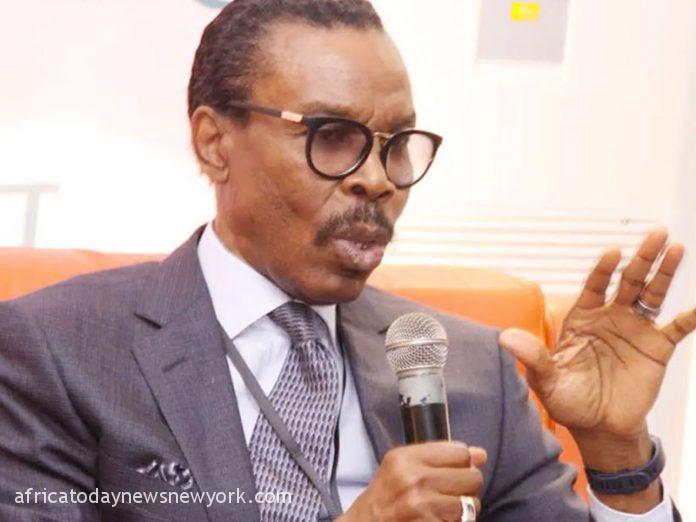A member of the Economic Advisory Council of President Muhammadu Buhari who is also the Managing Director/Chief Executive Officer of Financial Derivatives Company Limited, Mr. Bismarck Rewane, has revealed that the 2023 elections will be the costliest in the country’s history, with the marginal cost of winning the presidential poll presently estimated at ₦6. 094 trillion.
Rewane made this assertion when he addressed some of the 2023 election challenges in the July edition of the Lagos Business School’s breakfast presentation titled: ‘Analysts Bemused, Markets Confused and Speculators Amused which was covered by Africa Today News, New York.
According to him, this return on investment, would represent 40 per cent of two-year capital expenditure (CAPEX) of country’s annual budget of ₦18 trillion.
According to him, “2023 election (is) to be the costliest election in the history of Nigeria. Moneybags are ready to pay whatever price to win it. But it could be a case of ‘damned if I win, damned if I don’t,” adding: “the marginal cost of winning presidential election for a single tenure (is) ₦6.094 trillion,” in 2023.
Read Also: 2023: Labour Party Will deploy 15 Agents To Each PU — Utomi
He also gave the breakdown of the estimated cost of achieving electoral victory in 2023, including the cost of emerging as presidential candidates from various political parties’ presidential primaries that were concluded last month.
Rewane, which tagged the 2023 general election as ‘weaponising poverty,’ arrived at the costs estimated above based on the following assumptions: total registered voters in 2019, estimated at 84 million; voters turn out in 2019 – 34.75 per cent; expected registered voters for 2023 election (2019 numbers plus 25 per cent) – 105 million; voter turnout in 2015 – 44 per cent; expected voter turnout in 2023 – 57.75 million voters.’
He further projected that 34.65 million voters, representing 60 per cent of eligible voters, would be vulnerable to sell their votes to politicians, projecting that the, ‘number of years to be used to recover electoral expenses will be two years,’ at 17 per cent cost of capital, adding that there was, ‘high correlation between poverty and vote-buying.
Rewane projected that massive youth voters’ registration would tilt in favour of the newer parties like the Labour Party and the New Nigeria Peoples Party (NNPP), while, ‘the voting pattern will reflect anger, frustration, poverty, fear, resentment, and characteristics similar to the EndSARS protests.
